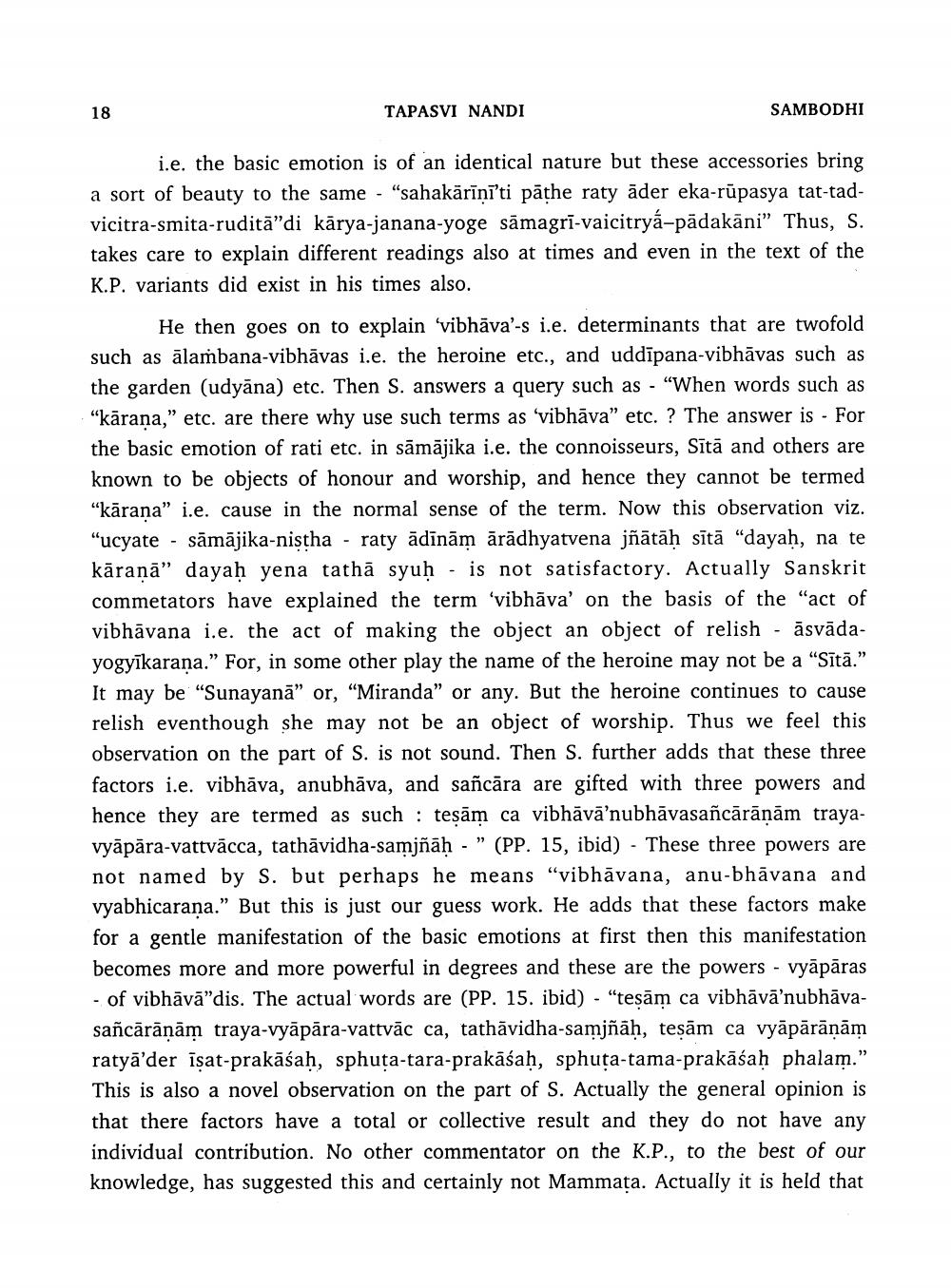________________
18
TAPASVI NANDI
SAMBODHI
i.e. the basic emotion is of an identical nature but these accessories bring a sort of beauty to the same - "sahakārīnīti pāthe raty āder eka-rūpasya tat-tadvicitra-smita-ruditā"di kārya-janana-yoge sāmagrī-vaicitrya-pädakāni” Thus, S. takes care to explain different readings also at times and even in the text of the K.P. variants did exist in his times also.
He then goes on to explain 'vibhāva'-s i.e. determinants that are twofold such as ālambana-vibhāvas i.e. the heroine etc., and uddīpana-vibhāvas such as the garden (udyāna) etc. Then S. answers a query such as - "When words such as “kārana," etc. are there why use such terms as 'vibhāva” etc.? The answer is - For the basic emotion of rati etc. in sāmājika i.e. the connoisseurs, Sītā and others are known to be objects of honour and worship, and hence they cannot be termed “kārana" i.e. cause in the normal sense of the term. Now this observation viz. "ucyate - sāmājika-nistha - raty ādīnām ārādhyatvena jñātāḥ sītā “dayah, na te kāraṇā” dayaḥ yena tathā syuh - is not satisfactory. Actually Sanskrit commetators have explained the term 'vibhāva' on the basis of the "act of vibhāvana i.e. the act of making the object an object of relish - āsvādayogyīkarana.” For, in some other play the name of the heroine may not be a “Sītā.” It may be "Sunayanā” or, “Miranda” or any. But the heroine continues to cause relish eventhough she may not be an object of worship. Thus we feel this observation on the part of S. is not sound. Then S. further adds that these three factors i.e. vibhāva, anubhāva, and sancāra are gifted with three powers and hence they are termed as such : tesām ca vibhāvā'nubhāvasañcārānām trayavyāpāra-vattvācca, tathāvidha-samjñāḥ - " (PP. 15, ibid) - These three powers are not named by S. but perhaps he means "vibhāvana, anu-bhāvana and vyabhicarana.” But this is just our guess work. He adds that these factors make for a gentle manifestation of the basic emotions at first then this manifestation becomes more and more powerful in degrees and these are the powers - vyāpāras - of vibhāvā"dis. The actual words are (PP. 15. ibid) - "tesām ca vibhāvā'nubhāvasañcārānām traya-vyāpāra-vattvāc ca, tathāvidha-samjñāh, teşām ca vyāpārānām ratyā’der īsat-prakāśah, sphuţa-tara-prakāśaḥ, sphuţa-tama-prakāśaḥ phalam.” This is also a novel observation on the part of S. Actually the general opinion is that there factors have a total or collective result and they do not have any individual contribution. No other commentator on the K.P., to the best of our knowledge, has suggested this and certainly not Mammata. Actually it is held that




